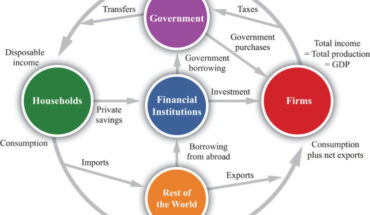
Dr. Anil Kumar Angrish

Wagh Saurabh Rajendra
Pharmaceutical companies are prone to risks like companies operating in any other sector. To deal with these risks, pharma companies put in place their risk mitigation strategies. Pharmaceutical sector is highly regulated at each stage of value chain. Further, pharmaceutical companies operate in different geographies, each having its own regulatory landscape, continuously evolving, changing, and undergoing increased scrutiny from the regulators. Any non-compliance with regulations or scrutiny processes can dilute the financial position or jeopardize that company’s reputation. Top 20 pharmaceutical companies reported compliance with cGMP regulation. In June 2024, the Drug Controller General of India (DCGI) revealed that the Central Drugs Standard Control Organization (CDSCO) had conducted risk-based inspections of more than 400 pharmaceutical manufacturing units over the past year and a half. Further, he said that he was not very happy to say that more than 36% of them had to be closed because these MSMEs cannot meet the expectations of the regulators.
Top pharmaceutical companies reported about integration of ‘Quality by Design (QbD) to build quality into all processes and use of quality tools to minimize process risks. Other regulatory compliance risk mitigation measures include ‘building a robust quality culture’, ‘robust compliance management system’, ‘independent assessments and audits’, ‘product life cycle management and timely recalls’, ‘engaging consulting firms to establish, train and constantly monitor Quality Culture Excellence’, to name a few.
To deal with credit risks, pharma companies ensure ‘credit approvals’, ‘establish a credit policy’, ‘establish credit limits’, ‘monitor the creditworthiness of counterparty’, and ‘expected credit loss model’ for assessing the impairment loss. To deal with liquidity risk, these companies have ‘prudent liquidity risk management’, ‘monitoring of rolling forecasts of the company’s liquidity position and cash and cash equivalents’, ‘cash flow forecasting models’, and development of a ‘robust cash management system’. To deal with ‘foreign exchange risk’, pharma companies opt for foreign exchange forward contracts, Option contracts, or Currency swap contracts. To mitigate ‘interest rate risk’, pharma companies opt for interest rate swaps, diversification of portfolio and review the interest rate gap statement and the mix of floating and fixed rate assets and liabilities.
To mitigate cyber-security risk, top pharmaceutical companies in India have implemented perimeter security, anti-virus, patch management, firewalls, encryption and cyber training. In certain companies, their internal team is regularly performing Vulnerability Assessment and Penetration Testing (VAPT), e.g., Divi’s Labs and Torrent Pharma reported about their team. Further, this is also reviewed by external consultants. Pharmaceutical companies also establish a robust Information Security Management System Framework, e.g., Lupin reported that their system is ISO/IEC 27001:2013 certified.
Pricing and Competition Risk remains a concern for pharmaceutical companies. Pharmaceutical product pricing for existing portfolios and new launches is subject to price controls as prices for 928 formulations have been fixed by the National Pharmaceutical Pricing Authority (NPPA) in India till date. Adverse pricing regulations of essential pharma products may adversely impact pharmaceutical companies’ revenue flow and earnings. Some top Indian pharmaceutical companies get significant revenue from the US and Europe market, e.g., selling specialty products in the USA and Europe, Middle East and Africa (EMEA) region exposed Lupin to downward pricing risks due to government efforts to reduce prescription drug prices. In Integrated Annual Report 2023-24, Lupin highlighted that the pharmaceutical market in EMEA with an estimated value of US $363 Bn, accounts for 25 per cent of the global market, and Lupin’s sales in the EMEA region constitute 10 per cent of the company’s global sales. To mitigate Pricing & Competition Risk, pharma companies focus on establishing a robust and diversified product portfolio, strengthen in-licensing and out-licensing of products, cost reduction, efficiency improvement, expansion of volumes of existing products and launch of new products. Pharmaceutical companies also resort to launch of innovative, differentiated, and value-accretive products for which better pricing can be secured. This risk has been cited by 13 out of 20 top pharmaceutical companies as critical threats to their business viability and expansion prospects.
Supply Chain Risk in pharmaceutical sector is dual-fold risk that involves securing the supply of Active Pharmaceutical Ingredients (APIs) and critical materials for products and ensuring a consistent supply of final products to domestic as well as global customers. For FY2022-23, 16 out of 20 leading pharmaceutical companies reported supply chain disruptions as a paramount risk impacting their operations worldwide. Companies like Zydus Lifesciences, Sun Pharma, Aurobindo Pharma are encouraging local sourcing which in turn improves supply chain resilience, limits various risks, including currency risk and reduces supply timelines. Cipla has 360-degree vendor reviews. Mankind Pharma has reported about inbound and outbound automation of warehouses using scanning technology, implementation of Vendor-Managed Inventory (VMI) systems, automation in product expiry management at points of sale and the adoption of digital demand planning and forecasting tools. Lupin has focused on forward and backward integration to reduce dependence on distributors and API suppliers, and 30% of its API requirements are fulfilled through its own API manufacturing sites.
Pharmaceutical companies are susceptible to many legal challenges such as breach of contract disputes, product recalls, product liability claims, regulatory investigations, Para IV litigations, among others. To mitigate these risks, leading pharma companies conduct patent searches, monitor patent expiry dates, and assess validity and enforceability. Mankind Pharma has reported about conducting comprehensive due diligence prior to entering into any agreements to deal with contract related risks. Zydus Lifesciences has a ‘Global Product Liability Insurance’ as a safeguard against potential claims regarding the quality of products.
Pharmaceutical Product Development Lifecycle is characterized by risks such as costly upfront investment in R&D, potential patent litigation, clinical trial delays, delays in regulatory reviews and approvals, etc. To mitigate R&D risks, pharmaceutical companies put in place robust project management to identify schedule slippages and prioritize timely de-risking interventions. A targeted approach is being adopted in specialized fields, as exemplified by Lupin’s concentrated efforts in the domain of inhalation and injectable solutions. Lupin implemented Integrated Business Planning in FY23 to identify the product portfolio well in time, and to work towards ‘First to Launch’ / ‘First to File’ alongwith higher Return on Investment (ROI). Torrent Pharma seeks suitable alliances with partners at appropriate stages to share the risks and rewards of the project, while continuing to develop NCEs for India.
Environment, Social and Governance (ESG) is taken into account by stakeholders while evaluating companies. Pharmaceutical companies are increasing use of renewable energy, improving processing of solid waste to avoid incineration/landfill disposal, opting for rainwater harvesting and water recycling, following principle of the RT (reduce, reuse, recover, recycle, and rethink) for managing natural resources, etc. Certain pharmaceutical companies have designed a multi-pronged strategy, e.g. Torrent Pharma has designed the strategy with four core pillars namely ‘Responsible Consumption’, ‘Responsible Practices’, ‘Responsible Communication’, and ‘Responsible Supply Chain’.
9 out of 20 top leading pharma companies have identified Quality Risk as a major risk that entails failure to comply with Good Laboratory Practices (GLP), cGMP etc. Risk Mitigation strategy includes adherence to global cGMP guidelines, quality standards, and SOPs, robust Quality Management Systems, Corrective and Preventive Action (CAPA), integration of Quality by Design (QbD) to build quality into all processes and use quality tools to minimize process risks, Quality Audit, among others. Piramal Pharma highlighted that the company is moving from ‘quality for compliance’ to ‘quality as a culture’, and the company has a dedicated team of Corporate Quality Assurance Group.
Commodity Risk has also been mentioned as a significant risk by 6 out of 20 companies as this risk arises from the company’s purchases and sales of APIs, including raw material components for such APIs. Effective risk management strategy can safeguard a pharmaceutical company against the volatility of commodity prices, which has been exacerbated by factors such as supply chain disruptions as happened during Covid, inflation, geopolitical tensions. To mitigate this risk, pharmaceutical companies develop robust sourcing policies, streamline their product portfolios, and renegotiate procurement contracts to secure more favourable terms.
One-fifth of top 20 leading companies have acknowledged Manufacturing Risk that can significantly affect their operational capabilities, e.g., Alkem Laboratories mentioned it a major risk as mostly domestic production is done at their Sikkim facility; any disruption in production or supply chain due to natural or manmade causes may directly affect earnings. To mitigate this risk, Alkem is looking to set up alternative in-house manufacturing facilities and forge contract manufacturing partnerships. Piramal Pharma assesses the quality of current preventive maintenance and generates a five-year plan for maintenance/replacement, with appropriate prioritization that is based on risk/impact.
People Risk or Talent Management is not merely about risk avoidance; it is about creating an environment where talent thrives, propelling the business forward in a highly competitive and regulated industry. 30% firms among top 20 leading firms reported it as a significant factor. Pharmaceutical Companies initiate targeted recruitment and retention for strategic businesses, geographies, and functions. Undertaking employee surveys, performing engagement and team building initiatives, evaluation of individual performance through Performance Management System (PMS), strategic tie-ups with reputed institutions for enabling company to attract skilled talent, Leadership Development Programmes, Rewards and Recognition are key components of mitigation strategy for this risk.
25% of the leading 20 pharmaceutical companies reported Pharmacovigilance (PV) Risk as a major risk that includes adverse drug reactions (ADRs), unexpected side effects, drug interactions and medication errors. Leading pharmaceutical companies employ centralized PV processes, global PV programme, ensure adherence to the International Council for Harmonization of Technical Requirements of Pharmaceuticals for Human Use (ICH) guidelines on PV, and maintain dedicated portals for reporting adverse events.
Finally, Ethical Conduct has been mentioned by leading pharma companies as a key risk for the industry. Ethical Issues include employee behavior, bribery, corruption, and fair dealings with all stakeholders. Certain pharmaceutical companies comprehensively define layers of preventive and detective controls to ensure compliance with laid down processes and applicable regulations, harness risk analytics to automate and identify areas of non-compliance, fraud and business waste, conduct annual e-training that embeds the Code of Conduct, among other initiatives.
Dr. Anil Kumar Angrish– Associate Professor (Finance and Accounting), Department of Pharmaceutical Management, NIPER S.A.S. Nagar (Mohali), Punjab
Wagh Saurabh Rajendra -MBA (Pharm.), Department of Pharmaceutical Management, NIPER S.A.S. Nagar (Mohali), Punjab
Disclaimer: Views are personal and do not represent the views of the Institute.






